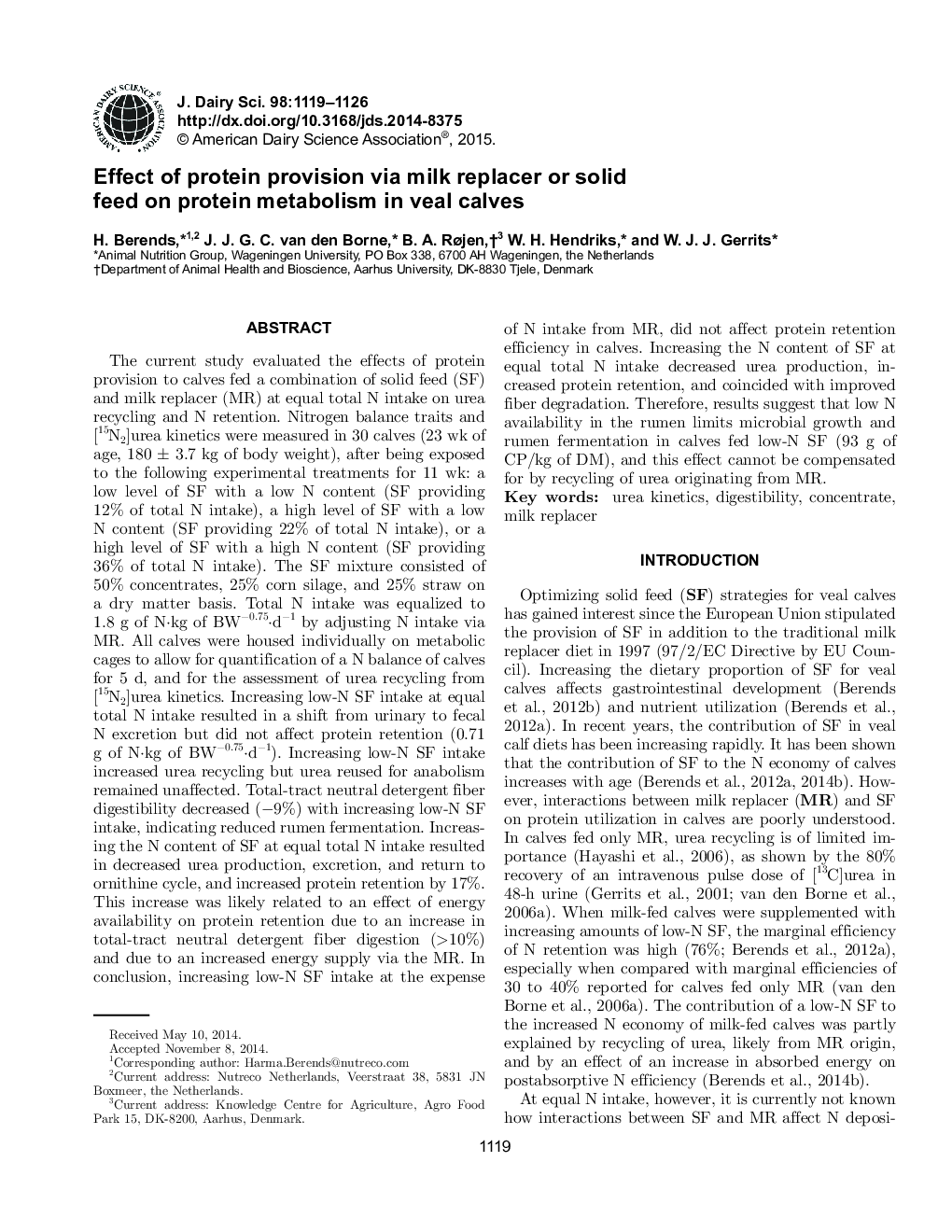| Article ID | Journal | Published Year | Pages | File Type |
|---|---|---|---|---|
| 10975426 | Journal of Dairy Science | 2015 | 8 Pages |
Abstract
The current study evaluated the effects of protein provision to calves fed a combination of solid feed (SF) and milk replacer (MR) at equal total N intake on urea recycling and N retention. Nitrogen balance traits and [15N2]urea kinetics were measured in 30 calves (23 wk of age, 180 ± 3.7 kg of body weight), after being exposed to the following experimental treatments for 11 wk: a low level of SF with a low N content (SF providing 12% of total N intake), a high level of SF with a low N content (SF providing 22% of total N intake), or a high level of SF with a high N content (SF providing 36% of total N intake). The SF mixture consisted of 50% concentrates, 25% corn silage, and 25% straw on a dry matter basis. Total N intake was equalized to 1.8 g of N·kg of BWâ0.75·dâ1 by adjusting N intake via MR. All calves were housed individually on metabolic cages to allow for quantification of a N balance of calves for 5 d, and for the assessment of urea recycling from [15N2]urea kinetics. Increasing low-N SF intake at equal total N intake resulted in a shift from urinary to fecal N excretion but did not affect protein retention (0.71 g of N·kg of BWâ0.75·dâ1). Increasing low-N SF intake increased urea recycling but urea reused for anabolism remained unaffected. Total-tract neutral detergent fiber digestibility decreased (â9%) with increasing low-N SF intake, indicating reduced rumen fermentation. Increasing the N content of SF at equal total N intake resulted in decreased urea production, excretion, and return to ornithine cycle, and increased protein retention by 17%. This increase was likely related to an effect of energy availability on protein retention due to an increase in total-tract neutral detergent fiber digestion (>10%) and due to an increased energy supply via the MR. In conclusion, increasing low-N SF intake at the expense of N intake from MR, did not affect protein retention efficiency in calves. Increasing the N content of SF at equal total N intake decreased urea production, increased protein retention, and coincided with improved fiber degradation. Therefore, results suggest that low N availability in the rumen limits microbial growth and rumen fermentation in calves fed low-N SF (93 g of CP/kg of DM), and this effect cannot be compensated for by recycling of urea originating from MR.
Related Topics
Life Sciences
Agricultural and Biological Sciences
Animal Science and Zoology
Authors
H. Berends, J.J.G.C. van den Borne, B.A. Røjen, W.H. Hendriks, W.J.J. Gerrits,
